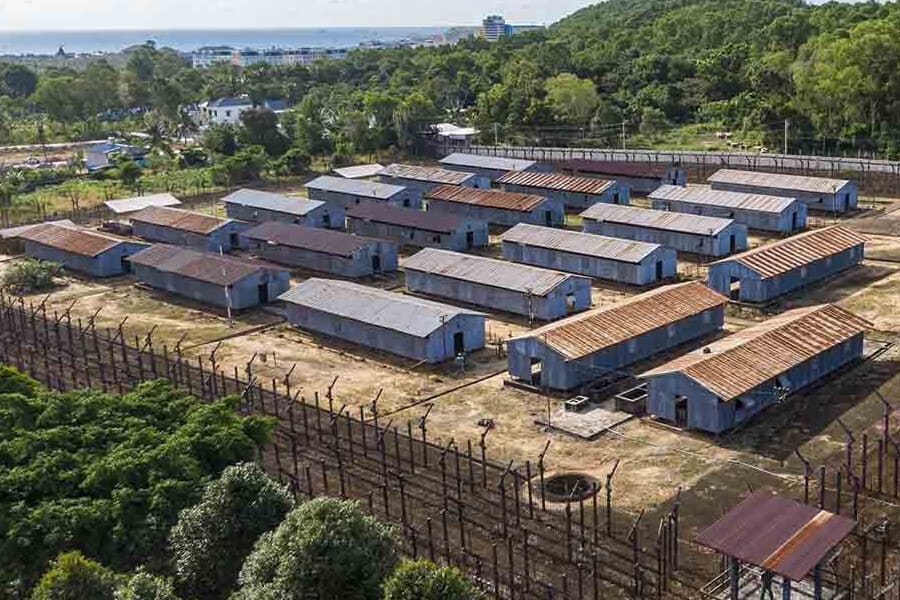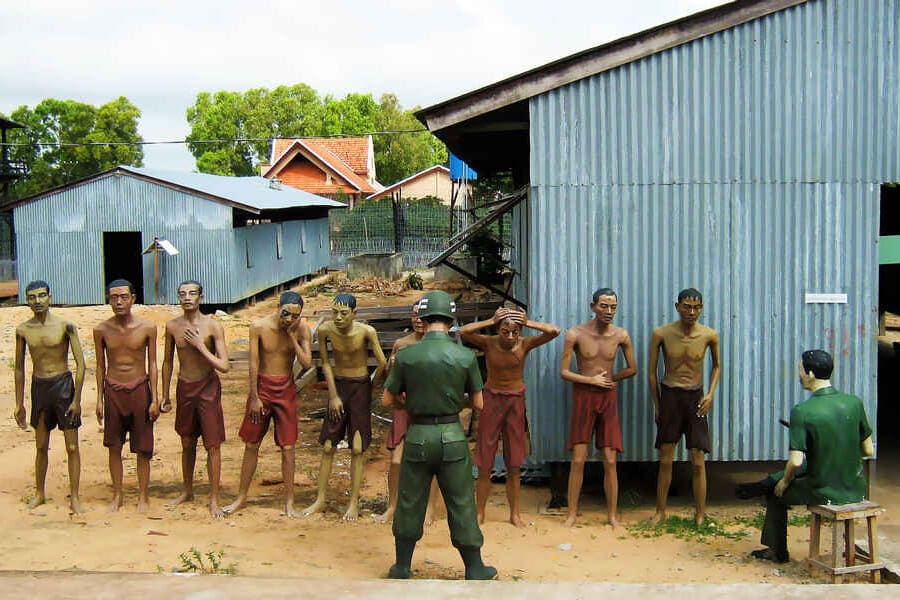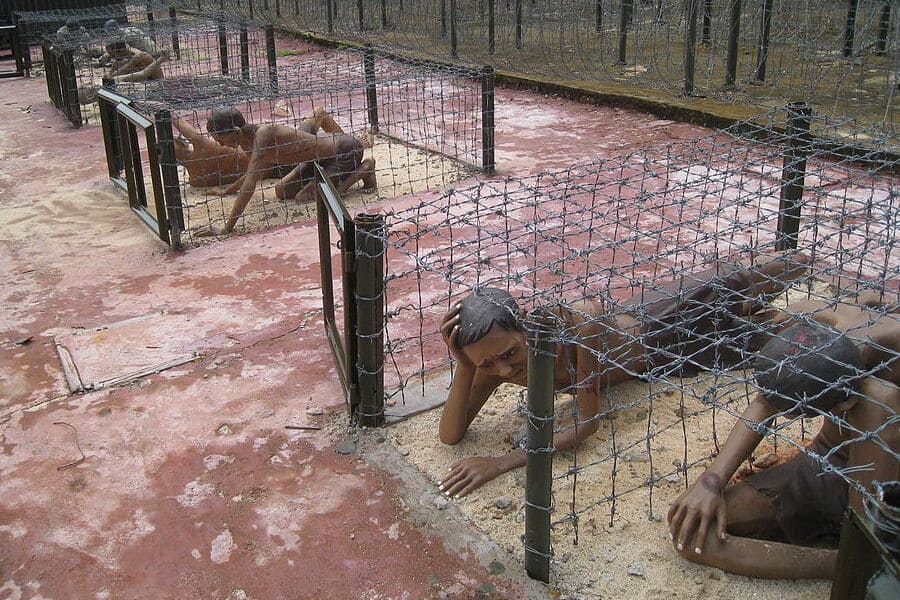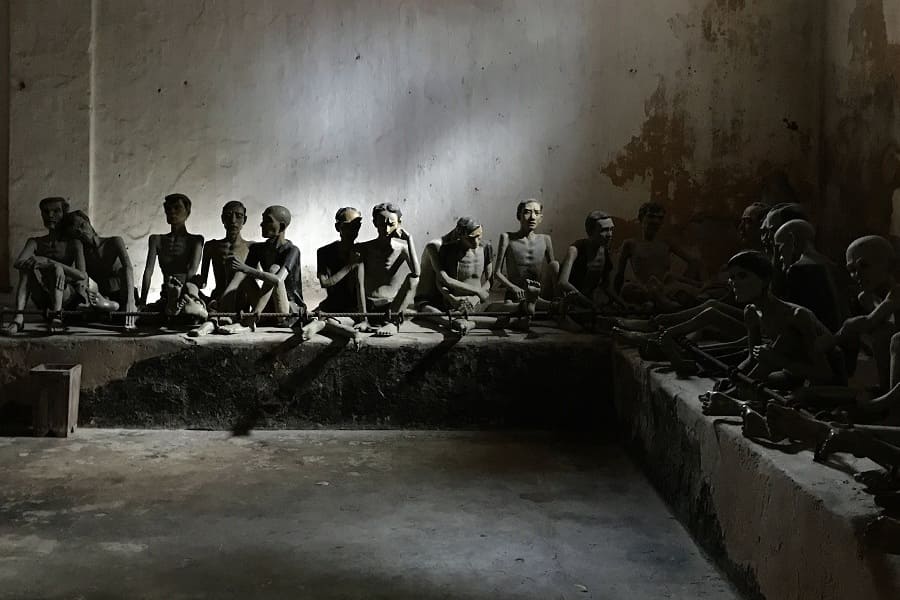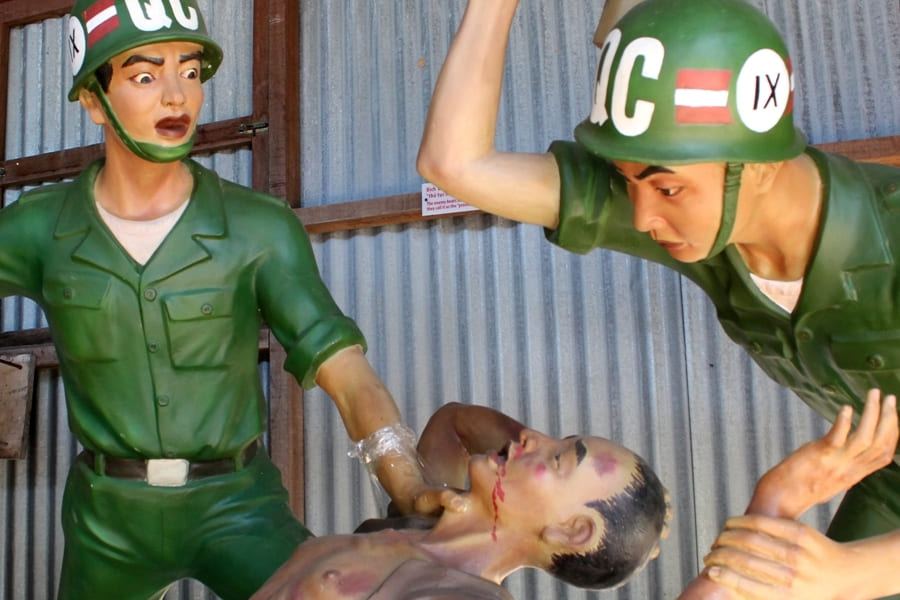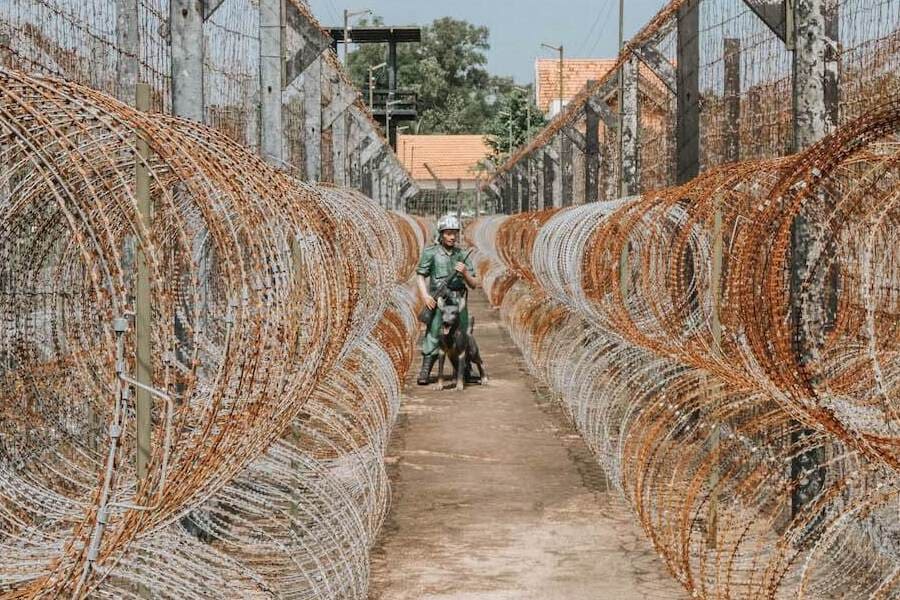Phu Quoc Prison, located on the picturesque Phu Quoc Island, is a poignant historical site that offers deep insights into Vietnam’s tumultuous past. As a prominent destination on Vietnam shore excursions, this prison, also known as Coconut Tree Prison, stands as a stark reminder of the country’s struggle for independence and the resilience of its people.
An Overview of Phu Quoc Prison
Phu Quoc Prison, situated on the serene Phu Quoc Island in Vietnam, is a historic site that offers a glimpse into the nation’s turbulent past. Known locally as Coconut Tree Prison, it was initially established by French colonialists and later used during the Vietnam War to detain political prisoners.
This infamous prison is notorious for its brutal conditions and the harsh treatment of inmates, symbolizing the intense struggles and sacrifices made by the Vietnamese people in their quest for independence. Today, Phu Quoc Prison stands as a poignant reminder of the resilience and enduring spirit of those who fought for freedom, making it an essential visit for anyone exploring the historical depths of Vietnam.
The Historical Background of Phu Quoc Prison
Phu Quoc Prison, originally established during the French colonial period in the late 1940s, was constructed to detain Vietnamese political prisoners and revolutionaries who opposed French rule. Its strategic location on Phu Quoc Island, off the coast of southern Vietnam, made it an ideal site for isolating prisoners from the mainland and suppressing anti-colonial activities. During the Vietnam War, the prison was repurposed by the South Vietnamese government and the United States to incarcerate Viet Cong and North Vietnamese soldiers. Known for its inhumane conditions and severe torture methods, Phu Quoc Prison played a significant role in the suppression of resistance movements and is a stark symbol of the brutalities endured by prisoners in the fight for Vietnam’s independence and unification.
Phu Quoc Prison during French colonial
In 1949, after being defeated by the People’s Liberation Army of China, the generals of the Kuomintang (Chinese Nationalist Party) led over 30,000 soldiers to flee to Vietnam, where they stationed themselves in the southern part of Phu Quoc Island. By 1953, these individuals had left for Taiwan, abandoning their homes and plantations. The French took advantage of the existing barracks to establish the Coconut Tree Camp, also known as Cây Dừa Camp, to detain nearly 14,000 prisoners. After more than a year in the camp, 99 prisoners had died, and 200 had escaped. In July 1954, following the Geneva Accords, the French returned most of the prisoners to the Democratic Republic of Vietnam.
Phu Quoc Prison during Vietnam War
In 1955, the South Vietnamese government built a new prison on the site of the old Cay Dua Camp, initially covering 4 hectares, and named it Cay Dua Correctional Camp, also known as Cay Dua Prison. In 1956, many prisoners from various locations, including Gia Dinh and Bien Hoa, were transferred there, along with some political prisoners. The situation became unstable with about 100 prisoners attempting to escape, some being shot dead. By 1957, political prisoners were either moved to the mainland or sent to Con Dao Prison.
Additionally, the government constructed a larger 400-hectare prison in the An Thoi valley, about 2 km from the old Cay Dua Camp, known as Phu Quoc Prisoner of War Camp. Phu Quoc Prison became a major detention center for over 32,000 prisoners, notorious for its brutal and inhumane treatment.
Experience for Tourists at Phu Quoc Prison
The Prisoner Cemetery is a significant site, serving as the final resting place for prisoners who died during their imprisonment, embodying the sacrifices made for independence and freedom.
Kien Van Church stands as a unique architectural symbol of steadfast faith amid wartime turmoil.
The exhibition area preserves important artifacts and documents, detailing the harsh lives and resilient spirit of the prisoners, including their silent protests and escape attempts.
The Martyrs’ Memorial honors those who sacrificed their lives, shaping the nation’s future freedom and independence.
The B2 section recreates the hardships of prison life, with lifelike statues depicting prisoners and soldiers, offering a poignant glimpse into their bitter experiences.
Visiting Phu Quoc Prison is not only a journey through history but also a tribute to the immense sacrifices of the Vietnamese people, who endured great trials to secure a free and independent homeland.
Phu Quoc Prison Tour Guide
How to get there?
By Air
- Fly to Phu Quoc Island: The fastest way to reach Phu Quoc Island is by air. Many domestic and international flights land at Phu Quoc International Airport (PQC).
- Transportation from the Airport: From the airport, you can take a taxi or a shuttle service to reach the prison. The distance from the airport to Phu Quoc Prison is approximately 20 km, and the drive takes about 30 minutes.
By Ferry
- Ferry to Phu Quoc Island: If you are coming from the mainland, you can take a ferry from Ha Tien or Rach Gia to Phu Quoc Island. The ferry ride from Ha Tien takes about 1.5 to 2 hours, and from Rach Gia, it takes around 2.5 to 3 hours.
- Transportation from the Ferry Terminal: Once you arrive at the Bai Vong Ferry Terminal on Phu Quoc Island, you can take a taxi or a local bus to reach Phu Quoc Prison, which is about 25 km away, taking around 40 minutes by car.
By Road
Drive or Rent a Motorbike: If you are already on Phu Quoc Island, you can rent a car or a motorbike to explore the island and visit Phu Quoc Prison.
The Opening hour
Morning: 8:00 am – 11:30 am
Afternoon: 13:00 pm – 17:00 pm
Entrance fee
100,000- 200,000 VNĐ/ person
Phu Quoc Prison stands as a powerful testament to the resilience and sacrifices of the Vietnamese people throughout their struggle for independence. As a key destination on Phu Quoc shore excursions, this historic site offers visitors a poignant glimpse into the harsh realities faced by prisoners and the enduring spirit that fueled their fight for freedom. Exploring Phu Quoc Prison not only enriches our understanding of Vietnam’s turbulent past but also honors the memory of those who gave everything for their country’s future.

